-
Notifications
You must be signed in to change notification settings - Fork 16
HOWTO: Connect camera and Issues
This page contains information about how to use the application and what kind of issues the users of Handy 3D Scanner can face during exploitation:
The application is working on a number of operation systems and could use a third-party hardware. Of course we trying to cover all the use cases and platforms with testing - but obviously it's impossible to have all the devices in the world to actually test the application. So this page will help users to determine where the issue is - it's a software or hardware issue etc.
Ok, let's figure out what you need to do and what you will see:
- Install the application - use Google Play store or any other way to install the latest version of Handy 3D Scanner
- Start the Handy 3D Scanner - application should start and you will see Capture tab:
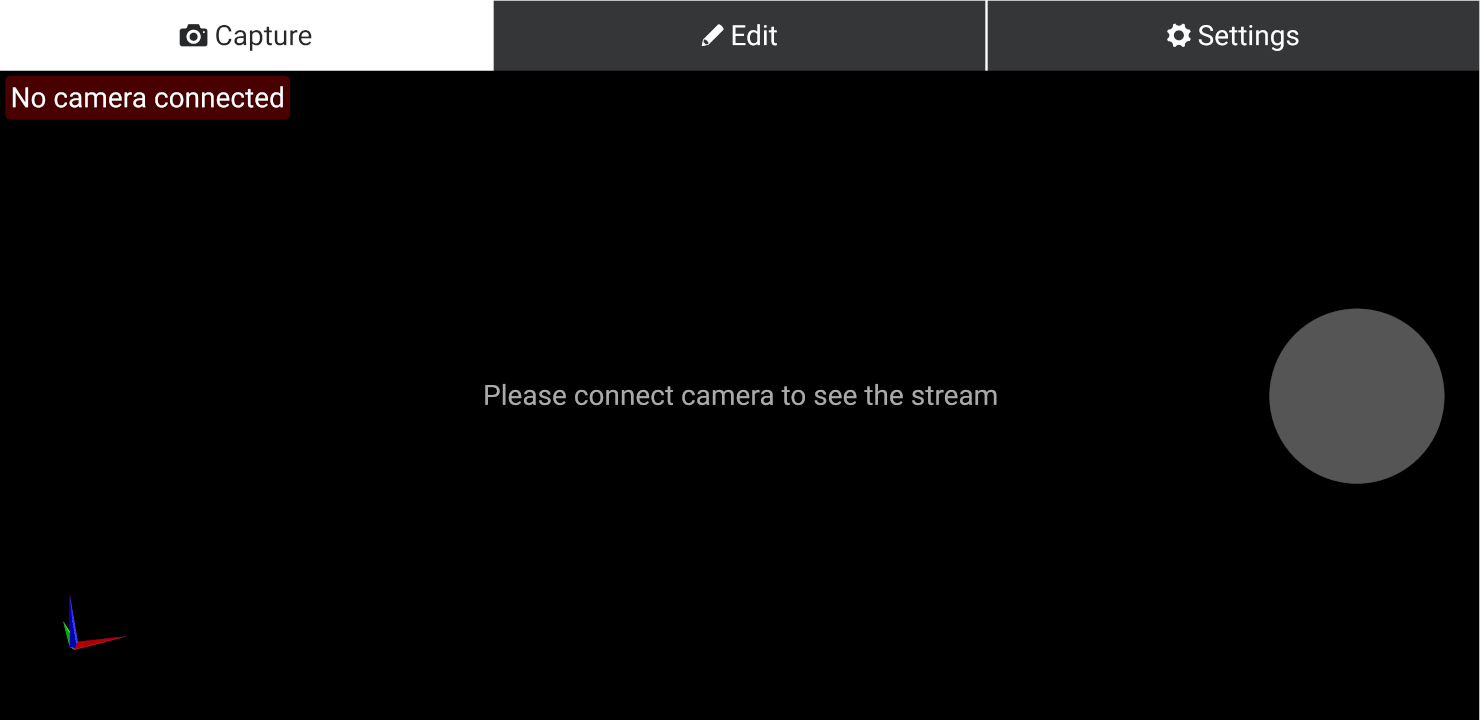
- Connect camera and phone with a cable (types of cable you can find here).
Android platform will notify the application that the new media device is connected and application will ask user to allow the access:
- Android USB device access request on Samsung S8
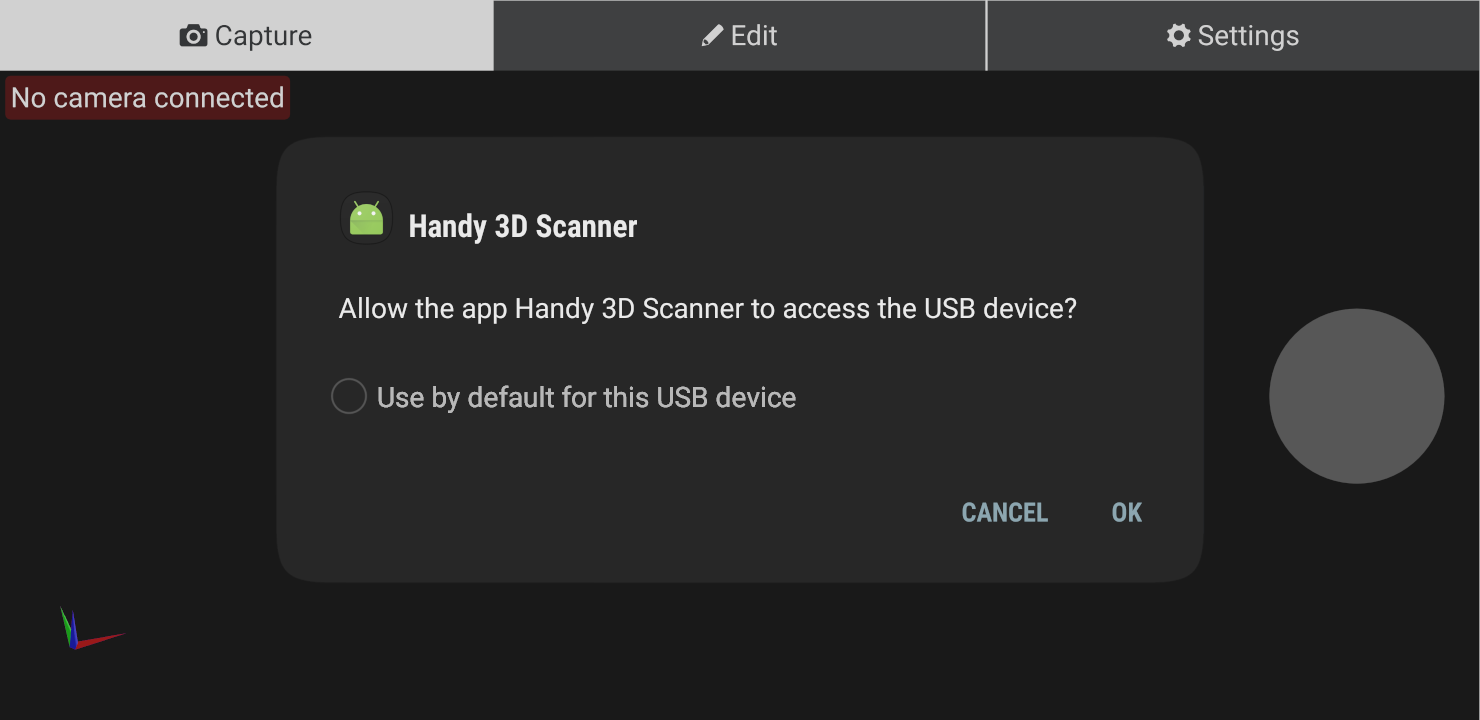
- Android USB device access request on Google Pixel
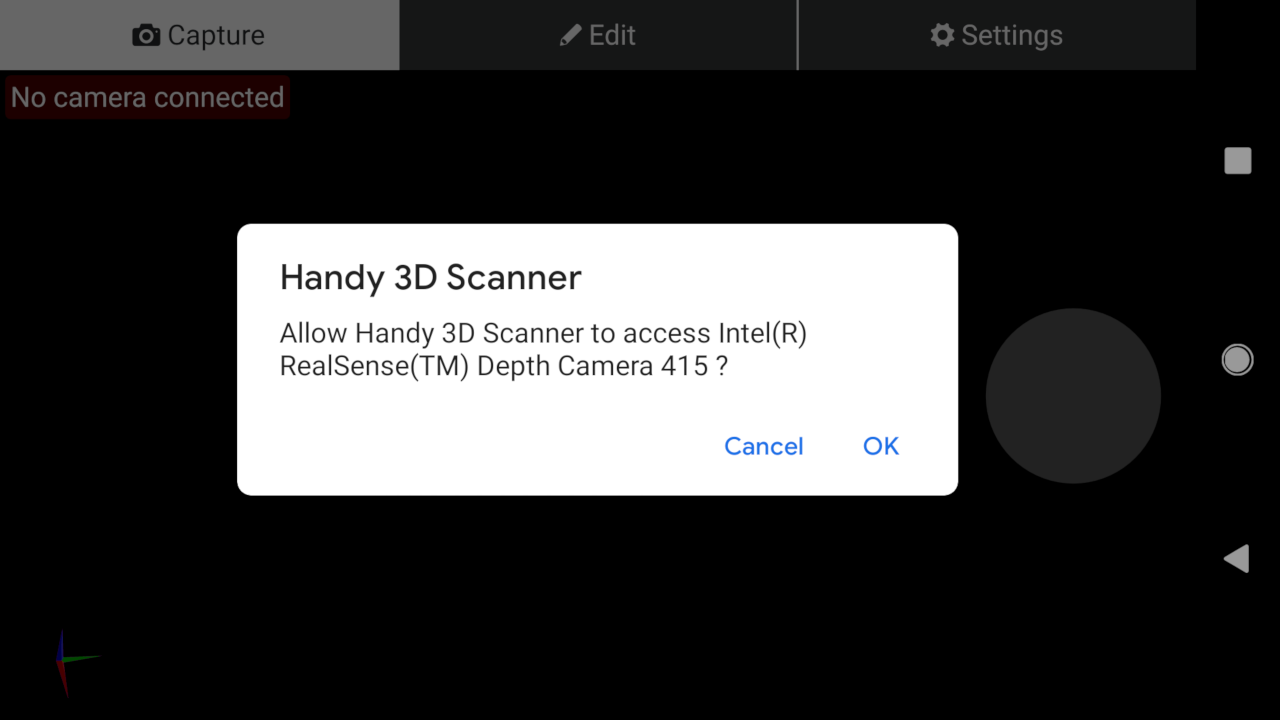
- Android USB device access request on Samsung S8
- User approving the access by clicking "Ok" button and application initializing the camera and starting the stream:
- Device started stream using USB 2 protocol (USB-C/USB-C 2.0 cable):
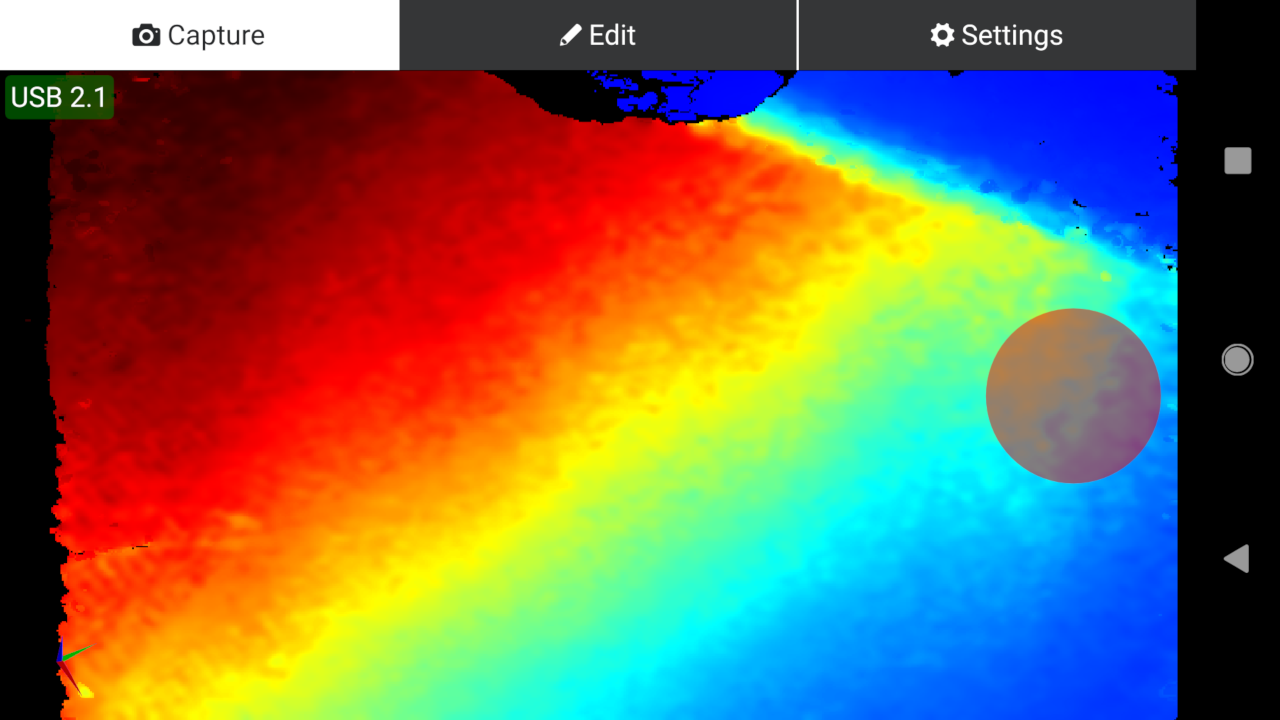
- Device started stream using USB 3 protocol (USB-C/USB-C 3.1g1 cable):
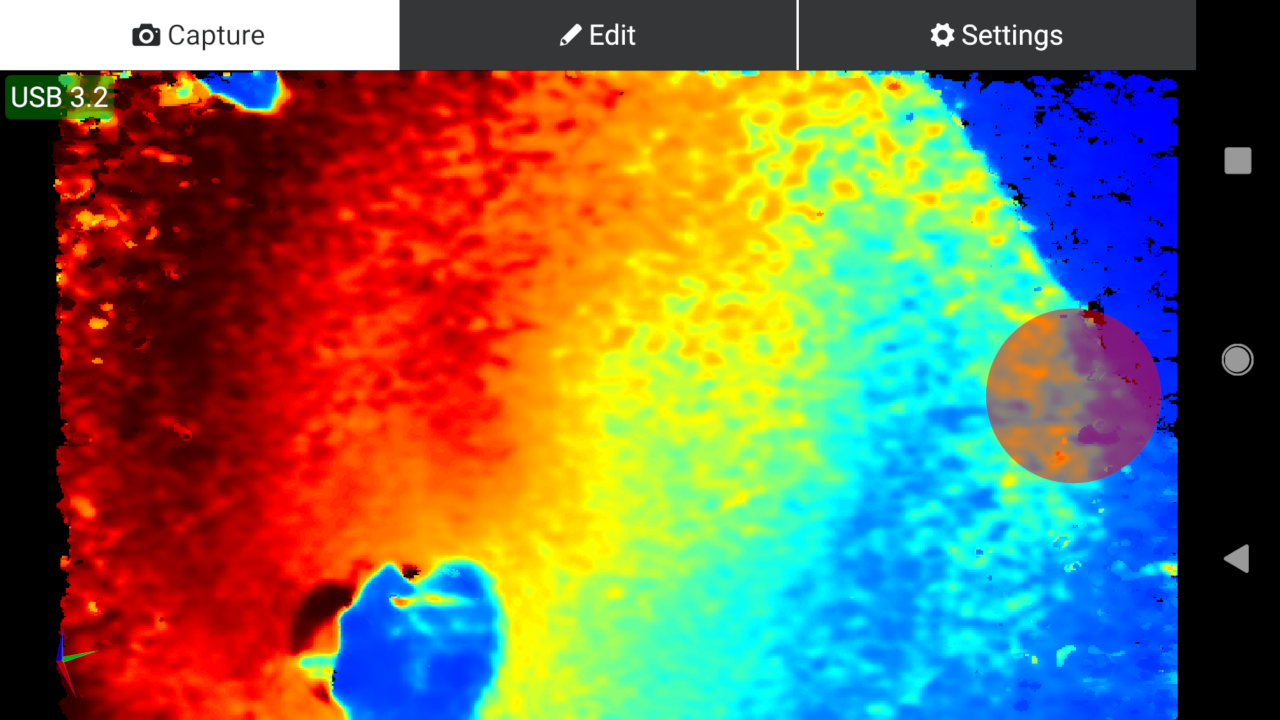
- Device started stream using USB 2 protocol (USB-C/USB-C 2.0 cable):
If you can see something like that - your camera is connected properly.
Let's go through the steps and check what kind of issues you can find:
- Install the application - use Google Play store or any other way to install the latest version of Handy 3D Scanner
- Hopefully you will not face any issues here - but if you will, please contact us and we will help you :)
- Start the Handy 3D Scanner - application should start and you will see Capture tab
- Here could be some issues if the phone is not supporting the minimal app requirements:
- OpenGL ES >= 3.0
- Android OS >= 5.0
- Here could be some issues if the phone is not supporting the minimal app requirements:
- Connect camera and phone with a cable (types of cable you can find here)
- This action item is important. You need to make sure that:
- You using a good cable, refer to the link to find the right cable
- Your phone is supporting OTG
- If you can't see any notification about the connected device or "No camera connected" field is not changing to the USB version:
- Check your camera - it should easily connect to the desktop as an usb device using standard USB/USB-C cable
- Check your cable (and adapter) - it should be good. It's better to buy well-known cables with USB version that your phone is supported. Try another cable or contact the cable manufacturer support.
- Check the phone - it is supporting OTG? USB host is ok? And so on.
- We are working on implementation of the bug handler #38, when the application will monitor the system and allow to send email to Handy 3D Scanner support team with the details about the failure.
- This action item is important. You need to make sure that:
- User approving the access by clicking "Ok" button and application initializing the camera and starting the stream
- USB protocol version is changed, but another request about the USB device access is popped up
- It could be an issue with power your phone providing to the camera. D400 cameras are quite hungry for power and need ~700mA (5V). If your phone is old or too strictly implementing the USB 2.0 specifications - that mean it will provide ~500mA max. So the camera will be detected, but stream will not be started and camera will restart itself asking for access again and again.
- USB protocol version is changed, but there is no stream video is available
- Probably the issue with USB speed - it's to low too allow even minimal fps settings. We will improve the notification system to make sure users can see what's happening: #39.
- Stream video are slow. USB 3 could provide 30 fps on max settings, USB 2 only 6 fps. If fps is lower than that #40
- Maybe CPU of your device is slow - try to lower the depth filtering settings (disable filters in
Camera.Streams.Depth) - Sometimes USB just can't allow more than one stream at a time (USB 2.0 for example), so disabling of the color stream in
Camera.Streamscould help here.
- Maybe CPU of your device is slow - try to lower the depth filtering settings (disable filters in
- USB protocol version is changed, but another request about the USB device access is popped up
I saw just one camera issue when I tried to use D435 camera that was connected to a smartphone and at the same time charging the phone using the Qi (wireless) charger: I was not able to detect the camera anymore (neither on smartphone or desktop) - it's not showing up as a connected usb device.
Anything else should be related to firmware or software issue: just use the recommended (usually latest) firmware from the official Intel RealSense support page for your camera: for example fw version 5.11.1.100.
You can create a ticket here on github or contact the support team using email in Google Play store or on state-of-the-art.io site.